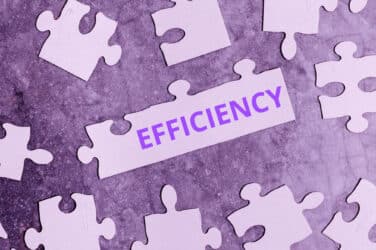

RQD* Clearing created tens of thousands of fictional accounts and simulated 18 months of business for regulators in order for the cloud-based correspondent clearing provider to officially launch.
RQD* Clearing CEO Michael Sanocki talks about our launch and how we’re bringing the change to the clearing industry that’s required. Read the blog here: https://t.co/z7X4OJjaoM pic.twitter.com/YuMe4B07yf
— RQD* Clearing (@RQDClearing) November 30, 2021
Michael Sanocki, chief executive of RQD, said the clearer was spun out of Volant Trading, an established market maker with regulatory approval. However, RQD had to file a continuing membership application with FINRA and also do testing with the DTCC, the US clearing infrastructure.
Sanocki told Markets Media: ‘That entire process took about a year and part of that was demonstrating the entire system.”
RQD simulated 18 months worth of business by creating more than 10,000 accounts, and their trades, to put them though the system and generate the required regulatory reports.
“Regulators want to know how you’re going to do anti-money laundering, what kind of surveillance you have in place,” added Sanocki. “It’s pretty much every aspect of the clearing operation without having a single client.”
RQD* Clearing is registered with the SEC, is a member of FINRA, OCC, DTC and NSCC and has exchange memberships at all major U.S. equities and options market centers.
Technology
RQD said it offers the first clearing platform built entirely on cloud-native, real-time technology, hosted on Microsoft Azure.
Sanocki said: “We control our code base which means we can be nimble. As we understand the business we can build things quickly.”
Jon Fowler, chief technology officer at RQD, told Markets Media that the regulators were very comfortable with cloud technology, especially as they are adopting the cloud themselves. For example, FINRA has moved the majority of its data volumes to Amazon Web Services, using AWS to capture, analyze and store a daily influx of billion of records.
Cloud native infrastructure means RQD can easily scale up and down as required and should be more secure. In addition, trade data can be ingested and processed in real time to provide up-to-date margin and risk requirement calculations.
“We have in-house from our experiences as a market maker which lends itself to risk management,” Fowler added.
Growth strategy
The platform has been live for six months, with multiple broker-dealers currently clearing through it.
Sanocki said there is a gap in the market as many clearing firms left the business, and the remainder want larger accounts.
“They are weighed down by heavy vendor technology costs and have the ability to charge a lot because clients don’t have anywhere else to go,” he added.
RQD is targetting small to midsize broker-dealers and start-ups who need access to clearing.
“Smaller tech-forward broker-dealers are popping up and need a tech-forward clearing firm who is willing to be nimble and have the ability to grow with them,” said Sanocki.
However, RQD can also handle larger accounts – although it can be difficult to persuade firms to switch clearers.
Sanocki said: “Switching a clearer can be like open heart surgery as you are taking your whole business, you have different reports, different interfaces that your employees rely on and your customer experience might change. We wanted to reduce that friction.”
Fowler said that a differentiator for RQD is the testing environment that allows a broker-dealer to run all their production data and take way the fear of switching. This also ensures that RQD has a good understanding of the client’s underlying business and its risks.
“Clients can stay with their current clearing firm and test their entire business with us,” Fowler added. “When they trust us and are comfortable they can switch over at their convenience.”
RQD also does not require that clients use them as their sole clearing firm.
The platform supports U.S. equities, options and exchange-traded funds, and has three main components – clearing, custody and execution services – all of which are accessible by advanced API.







